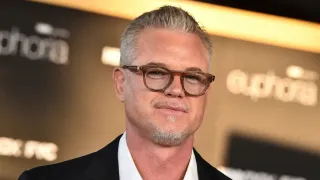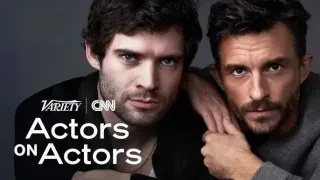December 16, 2019
Turkey Deploys Surveillance Drone in Northern Cyprus
READ TIME: 2 MIN.
Turkey has dispatched a surveillance and reconnaissance drone to the breakaway north of ethnically divided Cyprus amid tensions over offshore oil and gas exploration, Turkey's state-run Anadolu news agency said Monday.
The news agency said the Turkish-made Bayraktar TB2 drone took off from an airbase in Dalaman, Turkey and touched down at the airport in Gecitkala – known as Lefkoniko in Greek.
Kudret Ozersay, foreign minister of the self-declared Turkish Cypriot state, told reporters Sunday that the Turkish deployment would be limited to unarmed drones as there was "no need" for armed ones.
Earlier, Turkish Cypriot Prime Minister Ersin Tatar said there was an "urgent need" to address the security concerns of Turkey and the Turkish Cypriots in the eastern Mediterranean.
It's unclear what the drones will be specifically tasked to do on assigned missions. The Turkish government hasn't yet provided any details about the move.
Turkey's foreign minister. Mevlut Cavusoglu, said last week that Ankara could use its military forces to halt gas drilling in waters off Cyprus that it claims as its own.
Cavusoglu said Turkey "has the right to prevent" any unauthorized drilling in waters that it says fall within its own continental shelf.
Turkey doesn't recognize Cyprus as a state and asserts 44% of the island nation's exclusive economic zone are its own.
Part of the area that Turkey claims it has rights to are waters where Cyprus has exclusive economic rights and where companies including ExxonMobil, France's Total and Italy's Eni are licensed by the Cypriot government to jointly carry out drilling.
Cyprus' government spokesman Kyriakos Koushios told state broadcaster CyBC on Sunday that Turkish warships told an Israeli research vessel to leave "disputed" waters off Cyprus last month.
Cyprus was split in 1974 when Turkey invaded following a coup by supporters of union with Greece. Only Turkey recognizes a Turkish Cypriot declaration of independence in the north where it keeps more than 35,000 troops.
Earlier this year, Turkey dispatched warship-escorted drill ships to conduct exploratory gas drilling inside Cyprus' economic zone, including in an area where Eni and Total are licensed to drill. Ankara said it's acting to protect its interests and those of Turkish Cypriots to the area's energy reserves.
Last year, Turkish warships physically blocked a drill ship that was scheduled to carry out exploratory drilling on behalf of Eni in waters southeast of Cyprus.
The European Union has leveled sanctions against Turkey over its drilling activities off EU member Cyprus.
Last week, EU leaders rejected a deal Turkey signed with Libya's U.N.-recognized government that delineates the two countries' maritime borders which Ankara says gives it exclusive rights to a large swath of the eastern Mediterranean.






